|
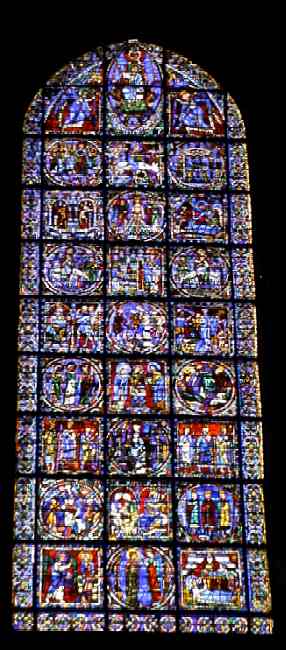 |
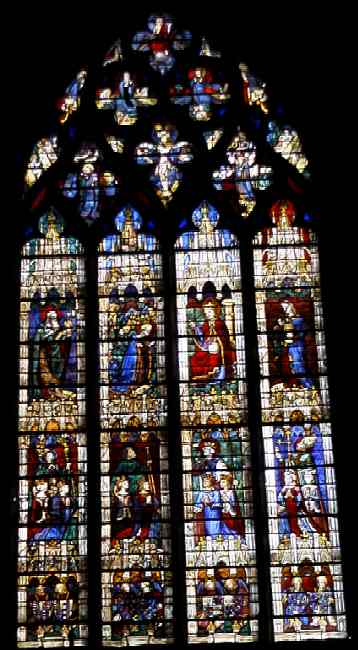 You don't need new glasses, this is just the best we
could do photographically in the South transept of the
Cathedral.
You don't need new glasses, this is just the best we
could do photographically in the South transept of the
Cathedral.
Inside the church you feel the haunting religious space as you do in most great cathedrals. After a few minutes, though, you realize the tremendously beautiful stained glass. As beautiful as it is, it is even more difficult to photograph so you will have to make do with the feeble efforts below:
|
 |
Here's the south rose window and its lower windows:
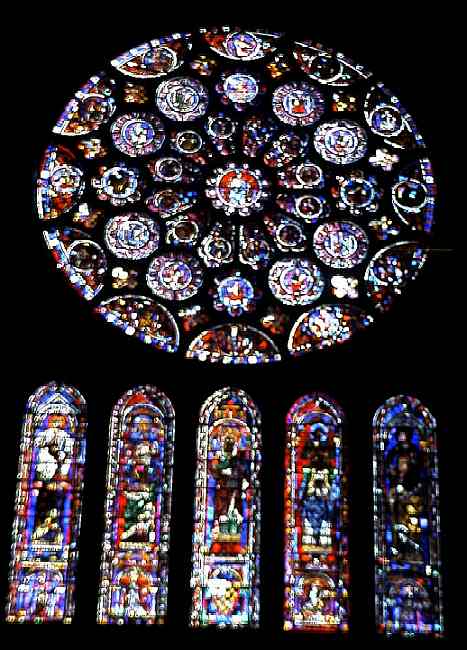
The only real way to appreciate these windows is to spend time with binoculars (as we did).
Chartres was a major pilgrimage center. What I didn't realize was that it was a hotel as well. The sick would stay in the northern gallery of the crypt (which we didn't get to see as it was well locked up). Ordinary pilgrims would spend the night in the nave. The floors have slight slant to them to make it easy to wash the debris out afterward.
Proceeding deep into the church, we encountered another unexpected joy: the marble screen which surrounds the altar area. The screen was added starting in the 16th century and continuing as funds became available until 1714. These contain about 40 scenes in renaissance marble carvings of superb craftsmanship which together show scenes from the life of Mary and Jesus. Here's a feel for the overall effect of the screen which winds around the back part of the church:
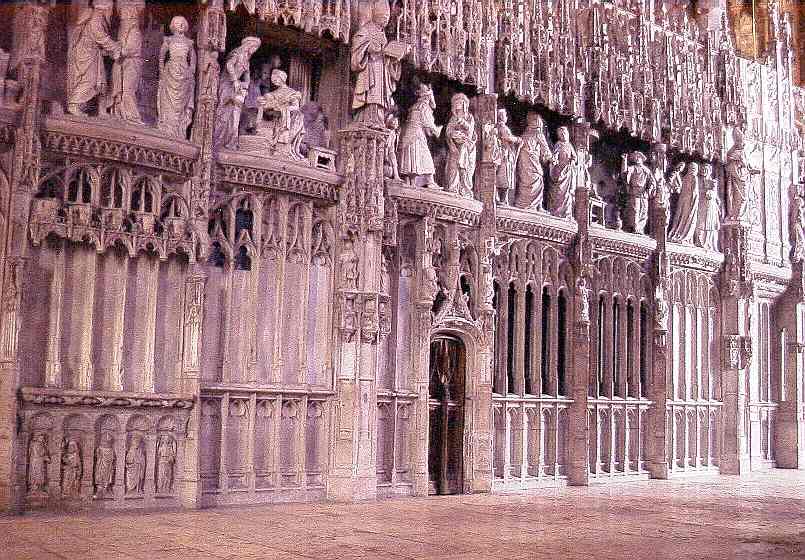
Here's one of the early works by a Parisian sculptor, Jean Soulas. This dates from around 1520 and shows Mary before the high priest in her wedding ceremony with Joseph. Her mother, St. Anne, and two others witness. The costumes in these scenes are taken from the time of the artist, not the subject:
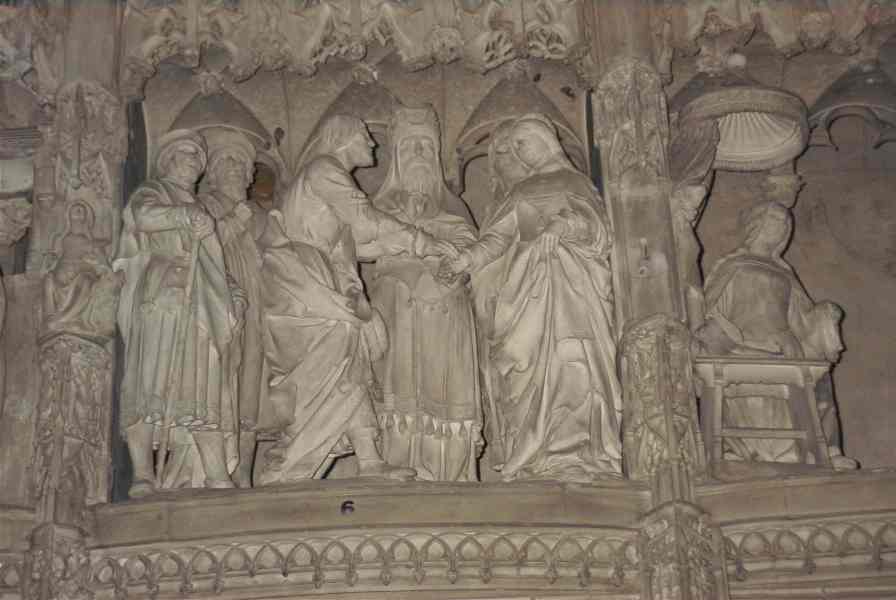
The next one shows some of the quality of the work. At the left are the three magi -- can you tell which one is black? At right is the presentation in the temple.
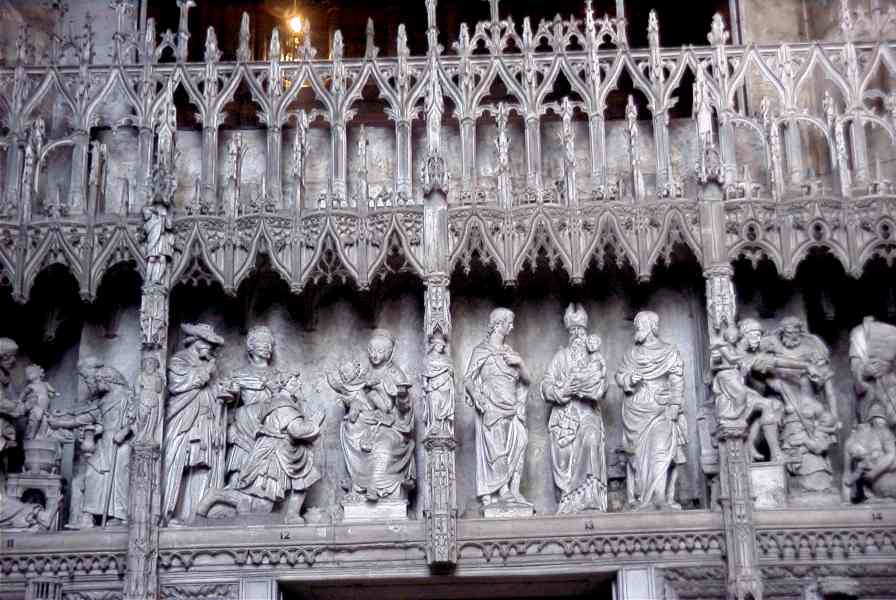
There is also some beautiful woodwork in this church as we can see from the photo below showing some of the gold trim on wood in the Lady of the Pillar chapel.
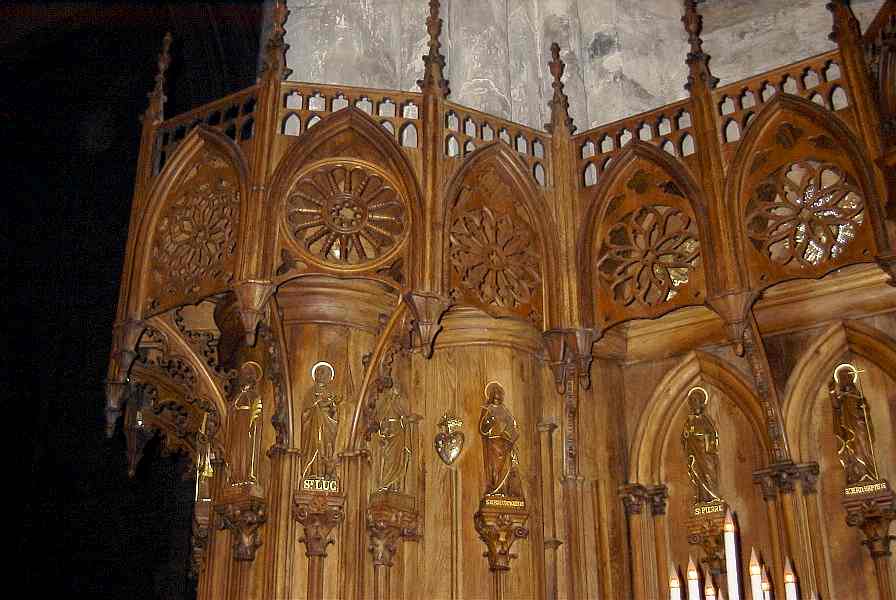
Unlike a lot of gothic cathedrals, Chartres was (re)built over a relatively short time and so the various elements have a lot of consistency. This is not quite the case for the Gothic stain glass windows and the renaissance screen added 300 years later. However, what stands most out of place is the 18th century altarpiece:
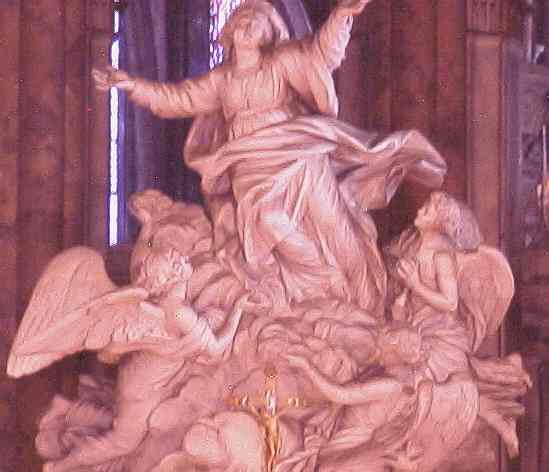
Next we went to lunch and then explored the town. Please join us for the sights by clicking here.
NPR fan? If so, you've probably heard from my favorite technologist, the University of Houston's John H. Lienhard whose "The Engines of Our Ingenuity" is probably the most consistently thought-provoking 5 minutes of radio for anyone who makes a living in a high tech world. His description of the Chartres windows is worth a quick read. Just click here.
Where do you want to go today? Here's a few choices:
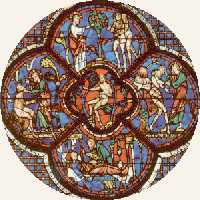
Pietrina and Dick's Home Page |